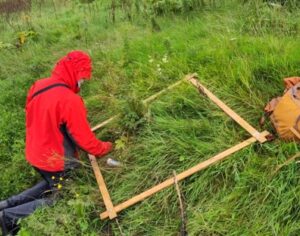The World Wildlife Fund (WWF) has published an emergency recovery plan to prevent the collapse of biodiversity in the world’s freshwater rivers, lakes and wetlands.
Freshwater covers approximately 1% of the earth’s surface but is home to around 10% of all species and they contain more fish than the world’s oceans.
However, in the last 50 years, there has been an 83% decline in freshwater species.
In response to this dramatic decline, WWF has published a new scientific paper in the journal BioScience, it is the first comprehensive plan to outline ways to protect and restore freshwater habitats.
The paper prioritises six points that have already proved successful in certain locations.
- Allow rivers to flow more naturally
- Reduce pollution
- Protect critical wetland habitats
- End overfishing and unsustainable sand mining
- Control invasive species
- Safeguard and restore river connectivity through better planning of dams and other infrastructure
David Tickner, chief freshwater advisor at WWF UK and lead author of the paper said: ‘With over a quarter of freshwater species now heading for extinction, nowhere is the nature crisis more acute than in our rivers, lakes and wetlands.
‘The Emergency Recovery Plan can halt this decades-long decline and restore life to our dying freshwater ecosystems – but we need the government to act.
‘The UK’s newly appointment Environment Secretary George Eustice can lead the way by acting to stop our rivers and lakes being treated like severs and wastelands and put freshwater conservation and restoration at the heart of a New Deal for Nature and People.’
Co-author of the study, James Dalton, director of the Global Water Programme said: ‘All the solutions in the recovery plan have been tried and tested somewhere in the world: they are realistic, pragmatic and they work.
‘We are calling on governments, investors, companies and communities to prioritise freshwater biodiversity. Now is the time to implement these solutions, before it is too late.’
In related news, earlier this month, WWF also demanded that the government makes changes to the Environment Bill in order to end imports on food products that negatively contribute to deforestation.
Photo Credit – Pixabay
















